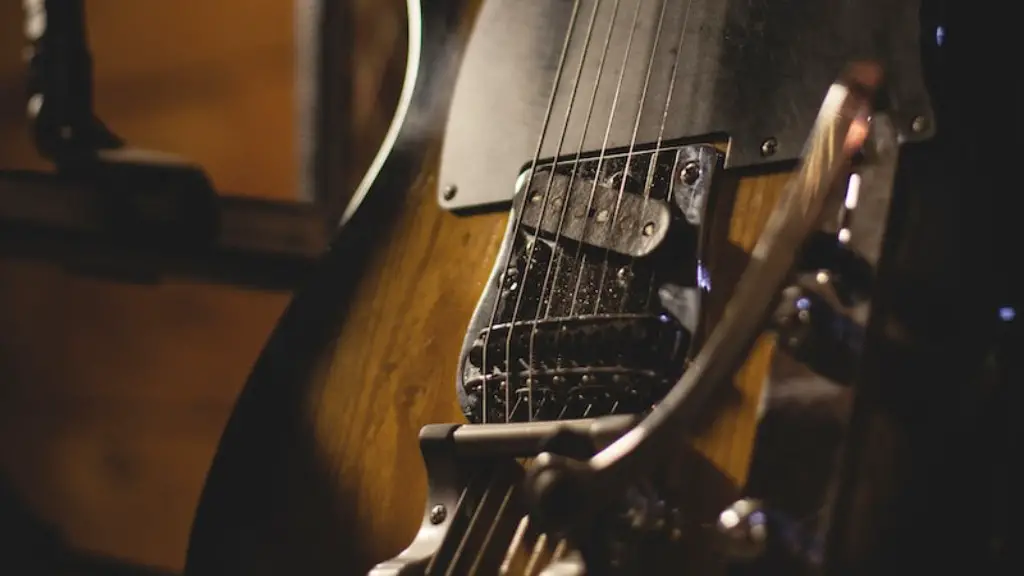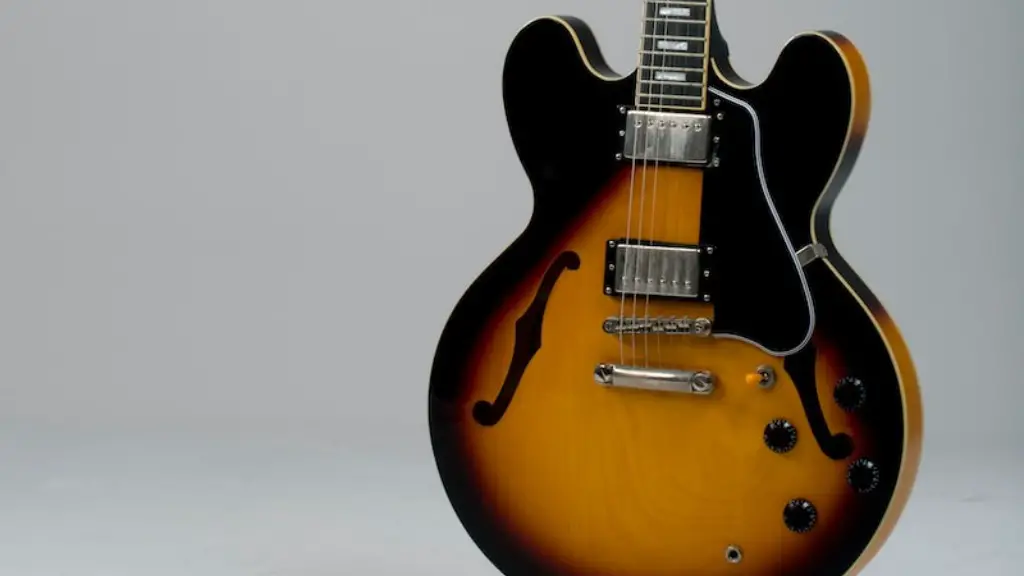Electric guitars are a great way to express your creativity through music. Whether you’re a beginner or an experienced player, choosing the right strings for your instrument can help you get the best sound and playability.
Strings come in different sizes and materials, so it’s important to know which type works best for your guitar and playing style. The gauge of the strings affects the overall sound and tension, so it’s important to get the right balance when selecting strings. It’s also important to consider the material of the strings and how often you plan on changing them.
In this article, we will discuss what strings should be used for electric guitar and what factors should be considered when making a choice. We will also look at some tips for string selection and maintenance to ensure your guitar always sounds its best.
Choosing Guitar Strings
Choosing the right set of guitar strings for your electric guitar is an important decision. There are several considerations to make when selecting strings, including gauge, material, and cost. The gauge of a string is the thickness or diameter of the string; they range from extra light to extra heavy. Generally, lighter strings are easier to play but make less sound, while heavier strings produce a fuller sound but may be harder to play. Different materials also have an effect on sound; steel strings are bright and crisp while nylon provides a warm and mellow tone. Cost is also an important factor when choosing strings; budget-friendly options may not provide the same quality as more expensive sets.
When selecting guitar strings, it’s important to consider all these factors in order to find the best set that meets your needs and preferences. With some trial and error, you can find the perfect set for your playing style that will help you get the most out of your electric guitar.
What to Look for When Buying Guitar Strings
Choosing the right strings for your electric guitar can be overwhelming, with so many options available. To narrow down your choices, consider the gauge, material, and coating of the strings. Gauge refers to the thickness of the strings; lighter gauges are easier to play and have a brighter sound, while heavier gauges give a fuller sound but require more strength to play. Material affects the tone of the strings and can range from nylon to stainless steel. Coating affects how long strings stay in tune and can range from uncoated to nanoweb coated. Choosing the right guitar strings will affect your tone and playing experience.
Be sure to read reviews online or ask experienced guitarists before making a purchase. Quality matters – avoid cheap strings as they often break easily or go out of tune quickly. Different brands also offer different sounds and feel, so experiment with different brands until you find one that works best for you. Finally, remember that regular string changes are important – whether you play regularly or not – as old strings can cause tuning issues or sound dull.
Finding the perfect guitar strings is an ongoing process of trial and error; take your time and find what works best for you!
Different Types of Electric Guitar String Gauges
Choosing the right strings for your electric guitar is an important decision that can affect the sound and playability of your instrument. Different string gauges can create different tones, from bright and sparkly to thick and juicy. While heavier strings will produce fuller tones with more sustain, lighter strings are easier to play. A good place to start is to try out a variety medium gauge strings, which offer a good balance between tone and playability.
Lighter gauge strings are typically .008 to .010 in size, and are great for bending notes and playing lead guitar lines. They provide a bright attack with less sustain than heavier gauge strings. Heavier gauge strings tend to be between .011 and .014 in size and provide more volume, sustain, and depth of tone. These thicker strings are great for rhythm playing but can be harder on the fingers if you’re used to playing with lighter gauges.
If you’re looking for something in between light and heavy gauges, try a set of .009 or .010-.046 strings. These gauges offer both clarity on the high-end as well as plenty of punch in the low-end frequencies. Ultimately, it’s up to you to experiment with different string gauges until you find the perfect set for your playing style!
Selecting the Right String Material
Choosing the right string material for your electric guitar is important for getting the sound you want. Whether you’re looking for a bright, twangy tone or a warm, mellow sound, choosing the right strings can make a big difference. Different materials offer different tonal characteristics and can also affect playability. Popular string materials include nickel-plated steel, stainless steel and nylon.
Nickel-plated steel strings are the most common and offer good durability as well as bright tones with plenty of sustain. They’re great for rock and blues styles of playing. Stainless steel strings are brighter and more responsive than nickel-plated strings but tend to be more brittle and break more easily. They provide a crisp, cutting sound that works well in genres like modern metal and jazz fusion.
Nylon strings are best suited for classical or flamenco guitars as they produce a warmer, mellower tone than metal strings do. However, some jazz musicians use them to achieve a softer, subtler sound than what metal strings can provide. If you’re unsure which type of string is best for your needs, try different sets out until you find one that fits your style of playing and gives you the sound you desire.
Changing String Gauge on an Electric Guitar
Changing the string gauge on an electric guitar is a great way to customize your sound and find the perfect strings for your playing style. Different gauges provide different levels of tension, allowing you to adjust the feel of your instrument to suit your needs. When choosing strings, consider the type of music you typically play and how often you replace them. Strings for heavier music styles such as hard rock or metal will usually require thicker strings, while lighter styles such as jazz or blues can benefit from thinner strings.
When selecting a new set of strings, it’s also important to consider the guitar’s setup. If your guitar has a floating bridge or tremolo system, heavier gauge strings might be too much tension for the instrument and cause it to go out of tune more easily. Thinner strings are often better in this situation as they will provide enough tension without putting too much stress on the bridge.
Ultimately, the best string gauge for any electric guitar is personal preference. Experiment with different gauges to find what works best for your playing style and instrument setup. Consider using coated strings if you want longer lasting tone and don’t forget to check out our selection of premium electric guitar strings!
Benefits of Different Gauge Strings on an Electric Guitar
Guitar strings come in a variety of gauges and materials, each with its own benefits. Heavier gauge strings provide more tension, making them ideal for rock and metal genres that require more power and sustain. Lighter gauge strings are easier to play, making them the preferred choice for jazz and blues styles. Players who want a balance between power and playability should opt for medium gauge strings. No matter the type of music you play, the right gauge string can make all the difference in sound.
When considering what strings to put on your electric guitar, it’s important to consider your playing style. As a general rule of thumb, heavier strings will produce a richer tone with more sustain, while lighter strings will provide better articulation and easier bending. Heavy-gauge strings are also less prone to breakage than lighter-gauge strings. However, they require more effort to play, so they may not be ideal if you have smaller hands or prefer a softer touch.
The type of material used in electric guitar strings is also important. Nickel-plated steel provides bright tones with plenty of attack, while pure nickel is mellower and smoother sounding. Coated strings last longer and don’t corrode as easily as uncoated strings but can reduce clarity when playing fast passages. Ultimately, it’s up to you to find the string that best suits your playing style and musical needs!
To Sum It All Up
Choosing the right strings for your electric guitar can be overwhelming. There are a few key factors to consider when making your selection, such as gauge, material and coating. Every type of string has its own unique qualities and characteristics, so it is important to experiment and find the ones that suit your playing style and sound. Once you have found the right strings for your electric guitar, you will be ready to take on any musical challenge. Ultimately, this decision is entirely up to you – so play around with different types of strings until you find what suits you best!





